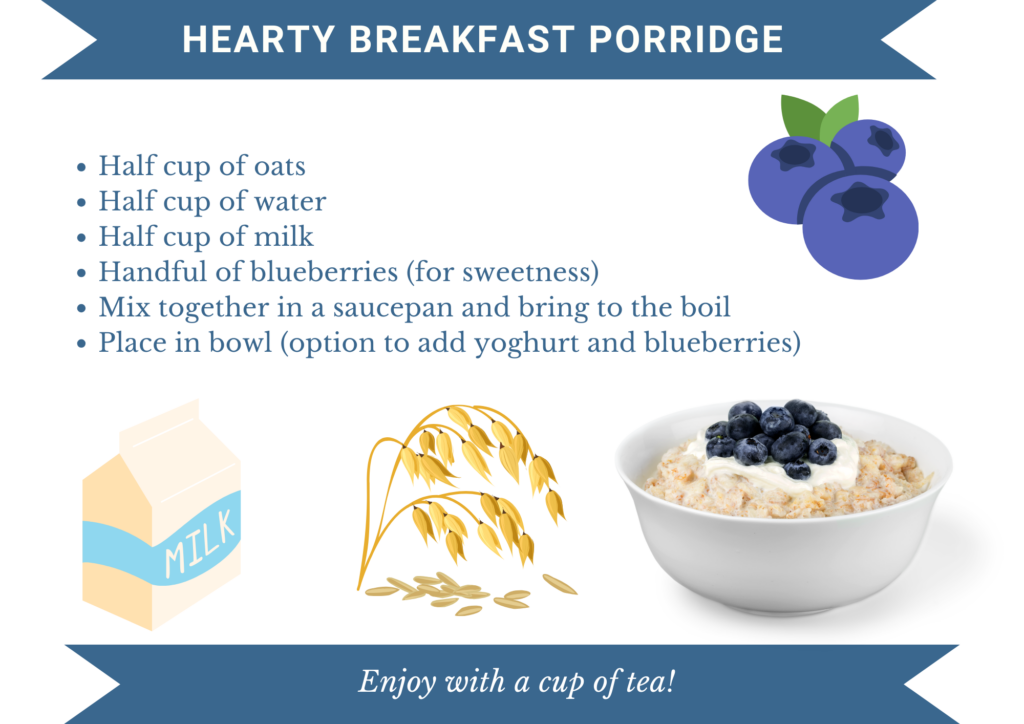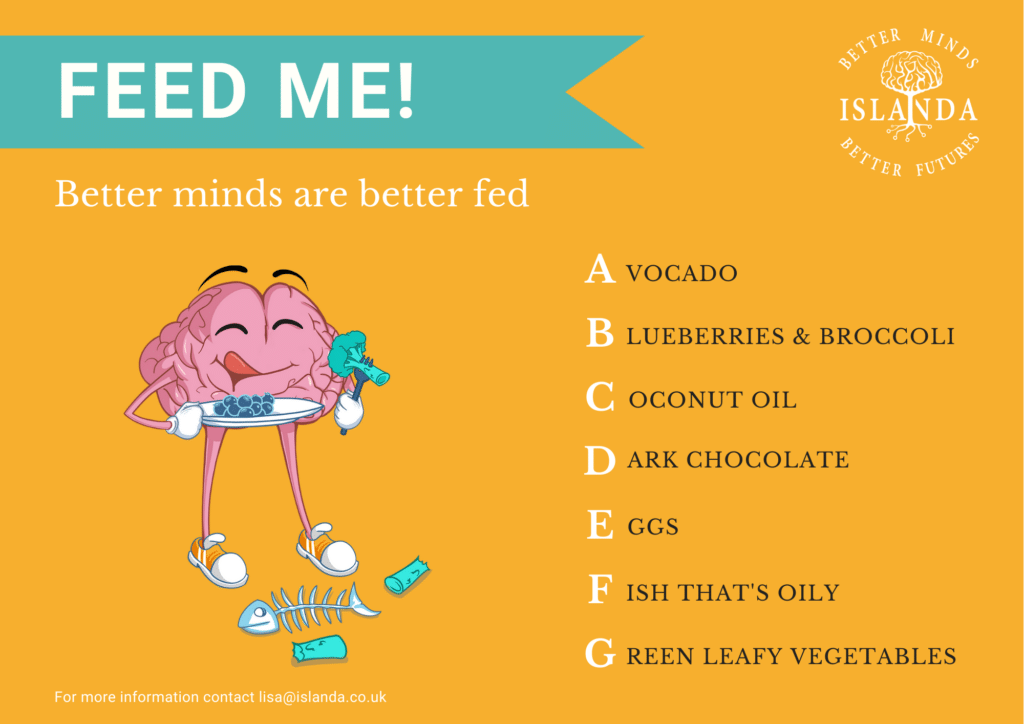“Our brain is our garden. The roots are nurtured by the food we eat” Unknown
With stress, anxiety and other unpleasant emotions on the rise, it’s easy to look for ‘mental health’ solutions. I have a mental health problem, therefore I need a mental health solution.
I mentor young people at a local secondary school, many of whom are presenting with stress and anxiety. Whilst we explore what they are experiencing and work on strategies to move forward more effectively, we also pay attention to the four pillars of physical health (nutrition, hydration, activity & sleep). It’s amazing how this helps, both physically and also because it gives them agency in being part of their own solution.
Looking at nutrition, the extent to which our gut influences our health is far beyond what many originally thought. This provides enormous opportunities for us to proactively manage our mental health and wellbeing through making more conscious food choices.
Indeed many scientists are referring to the ‘gut brain’, as research uncovers more an more evidence on how our gut is influencing our brain.
For example, there are more ‘messages’ going from our gut to our brain than the other way round! Furthermore, gut health is being linked to mental health issues such as anxiety and depression, as well as to many learning disorders and physical health conditions. As such, our diets are one of the first places to focus to improve health, wellbeing and performance.
To some extent we all know that our diets are important, and yet most of us make poor food choices.
Why is that?
In short, because it feels good.
Again, our ’emotional brain’ is driving our behaviours, without sufficient engagement from our ‘intelligent brain’.
So what does this mean in practise?
We make poor choices for a number of reasons:
- Lack of knowledge; as science progresses advice changes and we may not be aware of the latest research, or we might be confused as it conflicts with previous advice;
- Tight financial budgets; we opt for cheaper options, that can be bulked out by unhealthy fillers or be poor in quality;
- Being busy or time poor; we opt for fast food options, that are typically less healthy;
- Low energy or mood; we reach for high energy, sugary foods to boost energy/mood (in the short term)
- Stress levels are high; we opt for familiar, easy or feel good options and are less able to ‘think’ and make intentional decisions;
And the busier and more stressed we feel, the more susceptible we are to being influenced by our environment and others, compounded by having less willpower to resist. Our emotional brain is in the driving seat and our intelligent brain is in the back seat!
In addition, food manufacturers, retailers, restaurants etc spend millions on advertising, food placement, offers etc to grab your attention and tempt you – tapping into your emotions and talking directly to your emotional brain.
It’s hardly surprising that we do what we do!
So what can you do?
As always, awareness is the greatest agent for change, and developing a habit of checking in with yourself – your thoughts, feelings and actions – is key.
Here are a few tips to get started:
- Increase your knowledge; find out more about how food impacts the body and mind and create a list of what you want to keep, stop and start eating;
- Pause before you pop that something in your mouth; engage your intelligent brain and ask yourself ‘is this the right choice?’
- Be clear about what you would like to achieve in terms of your health and wellbeing; consider whether your short term choices fit with your long term goals
- Be open & non-judgemental; emotions drive behaviours. The key is to understand the message those emotions provide and then choose your actions using your intelligence, instead of acting on autopilot
- Be curious about what foods you typically choose. How does it make you feel? What impact is it having on your health & wellbeing goals? What can you do instead of using food, to fulfil your emotional needs?
- Notice when you feel most challenged to make good choices and create a strategy to help you in those moments. Have a plan, ask others to support you, give yourself permission to say no
- Establish healthy eating habits so that when you are busy, time poor or stressed your ‘go to’ autopilot patterns are working for you
And most importantly, be KIND to yourself. This isn’t about beating yourself up for making poor choices.
Rather, it’s about putting you in the driving seat, taking responsibility for your health and wellbeing and enabling you to create your best life.
Why not try incorporating more ‘brain’ foods into your diet. Here is a tasty breakfast porridge recipe that incorporates blueberries, to kickstart your day:

Why not use the well used and simple statement “You Are What You Eat” to guide whether to eat something or not. Before you eat that something, ask yourself “What will this [fill in the blank] enable me to become?”
As always, please share this idea with others and get in touch with me at lisa@islanda,co,uk if you would like more information or support.
Happy eating!
